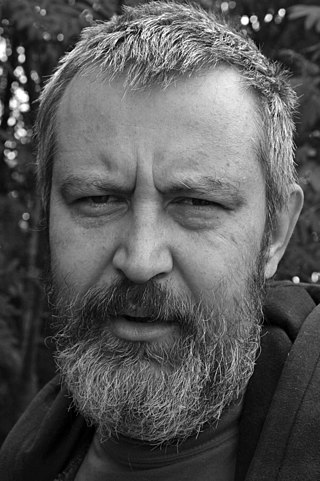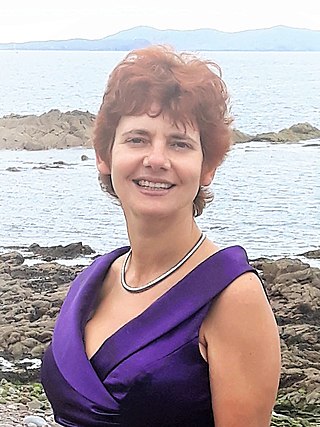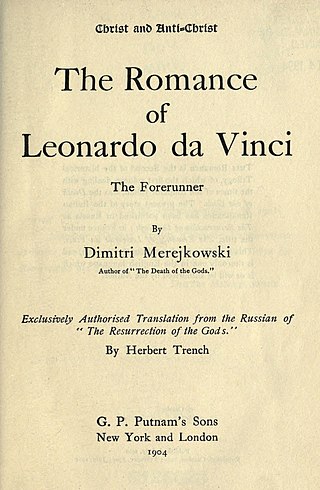
Lyudmila Evgenyevna Ulitskaya is an internationally acclaimed modern Russian novelist and short-story writer who, in 2014, was awarded the prestigious Austrian State Prize for European Literature for her oeuvre. In 2006 she published Daniel Stein, Interpreter(Даниэль Штайн, переводчик), a novel dealing with the Holocaust and the need for reconciliation between Judaism, Christianity, and Islam. Ulitskaya herself belongs to a group of people formed by the realities of the former Soviet Union, who see themselves racially and culturally as Jews, while having adopted Christianity as their religion. She won the 2012 Park Kyong-ni Prize.

Dubravka Ugrešić was a Yugoslav-Croatian and Dutch writer. A graduate of University of Zagreb, she was based in Amsterdam since 1996; she was identified as a Yugoslav writer.

Zinaida Nikolayevna Gippius (Hippius) (Russian: Зинаи́да Никола́евна Ги́ппиус, IPA: [zʲɪnɐˈidə nʲɪkɐˈlajɪvnə ˈɡʲipʲɪus](listen); 20 November [O.S. 8 November] 1869 – 9 September 1945) was a Russian poet, playwright, novelist, editor and religious thinker, one of the major figures in Russian symbolism. The story of her marriage to Dmitry Merezhkovsky, which lasted 52 years, is described in her unfinished book Dmitry Merezhkovsky (Paris, 1951; Moscow, 1991).

Dmitry Sergeyevich Merezhkovsky was a Russian novelist, poet, religious thinker, and literary critic. A seminal figure of the Silver Age of Russian Poetry, regarded as a co-founder of the Symbolist movement, Merezhkovsky – with his wife, the poet Zinaida Gippius – was twice forced into political exile. During his second exile (1918–1941) he continued publishing successful novels and gained recognition as a critic of the Soviet Union. Known both as a self-styled religious prophet with his own slant on apocalyptic Christianity, and as the author of philosophical historical novels which combined fervent idealism with literary innovation, Merezhkovsky became a nine-time nominee for the Nobel Prize in literature, which he came closest to winning in 1933. However, because he was close to the Nazis, he has been virtually forgotten after World War 2.

Oleg Pavlov was a prominent Russian writer and winner of the Russian Booker Prize.

Fyodor Sologub was a Russian Symbolist poet, novelist, translator, playwright and essayist. He was the first writer to introduce the morbid, pessimistic elements characteristic of European fin de siècle literature and philosophy into Russian prose.

Oksana Stefanivna Zabuzhko is a Ukrainian novelist, poet, and essayist. Her works have been translated into several languages.

Afag Masud — Azerbaijani writer, People’s Writer, playwright, Honoured Art Worker, a full member of Peter’s Academy of Art and Science, a full member of European Academy of Sciences, Arts and Literature, member of the Georgian Writers Association? Board Chair of the Azerbaijan Translation Centre, and editor-in-chief of the “Khazar” World Literature Magazine. playwright, Honored Art Worker, "Humay" award winner, Chief editor of "Khazar" world literature magazine.
Elena Alexandrovna Kostioukovitch, is an essayist and literary translator. She is the winner of numerous literary awards, including the Best Translation of the Year in the USSR (1988), Zoil (1999), Grinzane Cavour Moscow (2004), Welcome Prize (2005) given by the Russian National Association of Restaurateurs, Bancarella (cucina) Award, Chiavari Literary Prize, and Premi Nazionali per la Traduzione. Resides with her husband and two children in Milan, Italy.
Dmitry Yevgenyevich Galkovsky is a Russian writer, journalist, philosopher and blogger. Most famous as author of the novel The Infinite Deadlock.

Krishna Sobti was an Indian Hindi-language fiction writer and essayist. She won the Sahitya Akademi Award in 1980 for her novel Zindaginama and in 1996, was awarded the Sahitya Akademi Fellowship, the highest award of the Akademi. In 2017, she received the Jnanpith Award for her contribution to Indian literature.
Hualing Nieh Engle, née Nieh Hua-ling, is a Chinese novelist, fiction writer, and poet. She is a professor emerita at the University of Iowa.

Marko Vovchok was a Ukrainian female writer of Russian descent. Her pen name, Marko Vovchok, was invented by Panteleimon Kulish. Her works had an anti-serfdom orientation and described the historical past of Ukraine. In the 1860s, Vovchok gained considerable literary fame in Ukraine after the publication in 1857 of a Ukrainian-language collection, "Folk Tales". In terms of literary fiction, Marko is considered to be one of the first influential modernist authors in Ukraine. Her works "shaped the development of the Ukrainian short story". Also, she enriched the Ukrainian literature with a number of new genres, in particular, the social story (Instytutka). The story "Marusya", translated and adapted into French, became popular in Western Europe at the end of the 19th century.

Lidia Ivanovna Veselitskaya, March 17, 1857 – February 23, 1936) was a Russian novelist, short story writer, memoirist, and translator who used the pseudonyms V. Mikulich and L. Chernavina.

K. R. Meera is an Indian author and journalist, who writes in Malayalam. She was born in Sasthamkotta, Kollam district in Kerala. She worked as a journalist in Malayala Manorama but later resigned to concentrate more on writing. She started writing fiction in 2001 and her first short story collection Ormayude Njarambu was published in 2002. Since then she has published five collections of short stories, two novellas, five novels and two children's books. She won the Kerala Sahitya Akademi Award in 2009 for her short-story, Ave Maria. Her novel Aarachaar (2012) is widely regarded as one of the best literary works produced in Malayalam language. It received several awards including the Kerala Sahitya Akademi Award (2013), Odakkuzhal Award (2013), Vayalar Award (2014) and Kendra Sahitya Akademi Award (2015). It was also shortlisted for the 2016 DSC Prize for South Asian Literature.

Evgenia Tur was a Russian writer, critic, journalist and publisher. Her birth name was Elizaveta Vasilyevna Sukhovo-Kobylina. Her full married name was Countess Elizaveta Vasilyevna Salias De Tournemire. The novelist Evgeny Salias De Tournemire was her son. The playwright Aleksandr Sukhovo-Kobylin was her brother. Her sister, Sofia, was a painter of some note.

Alisa Arkadyevna Ganieva is a Russian author, writing novels, short prose and essays.

Margarita Maratovna Meklina is a short story writer and novelist.

The Romance of Leonardo da Vinci is the second novel by Dmitry Merezhkovsky, first published in 1900 by Mir Bozhy magazine, then released as a separate edition 1901. The novel constitutes the second part of the Christ and Antichrist trilogy (1895-1907), started by the writer's debut novel The Death of the Gods.

Victoria Amelina is a Ukrainian novelist. She is the author of two novels and a children’s book, a winner of the Joseph Conrad Literary Award and a European Union Prize for Literature finalist.

















